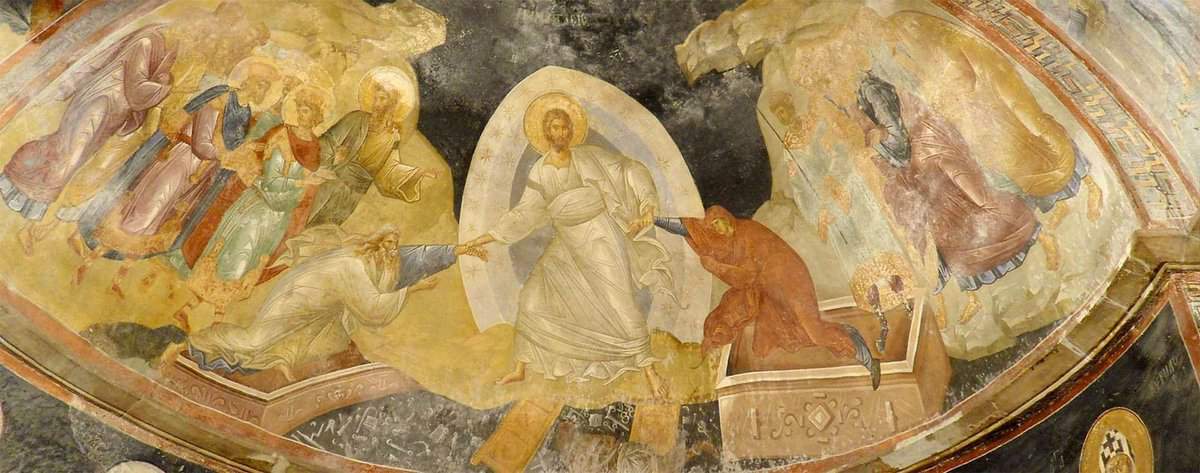About Salvation

Salvation is the ultimate goal of Christianity, and the purpose of the Church. The Orthodox Church teaches that “God became man (in the person of Jesus Christ), so that man may become like God” (St. Athanasius). This concept of becoming like God is termed “theosis” in Greek, or deification, and it means that salvation is not simply a response to a legalistic question, but is rather a healing process initiated by God and participated in by man.
“as His divine power has given to us all things that pertain to life and godliness, through the knowledge of Him who called us by glory and virtue, by which have been given to us exceedingly great and precious promises, that through these you may be partakers of the divine nature …”
– 2 Peter 1:3-4
Orthodoxy views mankind’s inclination to sin as a symptom of an illness that needs treatment, not just a transgression that requires retribution. One of the distinctive characteristics of Orthodox Christian theology is that it sees the Gospel message of Christ not as law, but as an invitation into relationship. It speaks of the mystery of the Holy Trinity in terms of the relationship of love that exists among them. To join in that love is the work that will lead to salvation.
Below is a short video detailing how the Orthodox understanding of salvation is different from that of Western confessions of Christianity (ie. Roman Catholicism, Protestantism):
“‘I am the living bread which came down from heaven. If anyone eats of this bread, he will live forever; and the bread that I shall give is My flesh, which I shall give for the life of the world.’
The Jews therefore quarreled among themselves, saying, ‘How can this Man give us His flesh to eat?’
Then Jesus said to them, ‘Most assuredly, I say to you, unless you eat the flesh of the Son of Man and drink His blood, you have no life in you. Whoever eats My flesh and drinks My blood has eternal life, and I will raise him up at the last day. For My flesh is food indeed, and My blood is drink indeed. He who eats My flesh and drinks My blood abides in Me, and I in him.'”
– John 6:51-56
Through the Incarnation (God becoming man), salvation is not just a mental concept or set of rules. The spiritual has been joined to the physical through the Mystery of the Eucharist. Because the spiritual has become physical, the mystical exchange of our life with God’s that happens in the Divine Liturgy is our primary means of participation in salvation:
